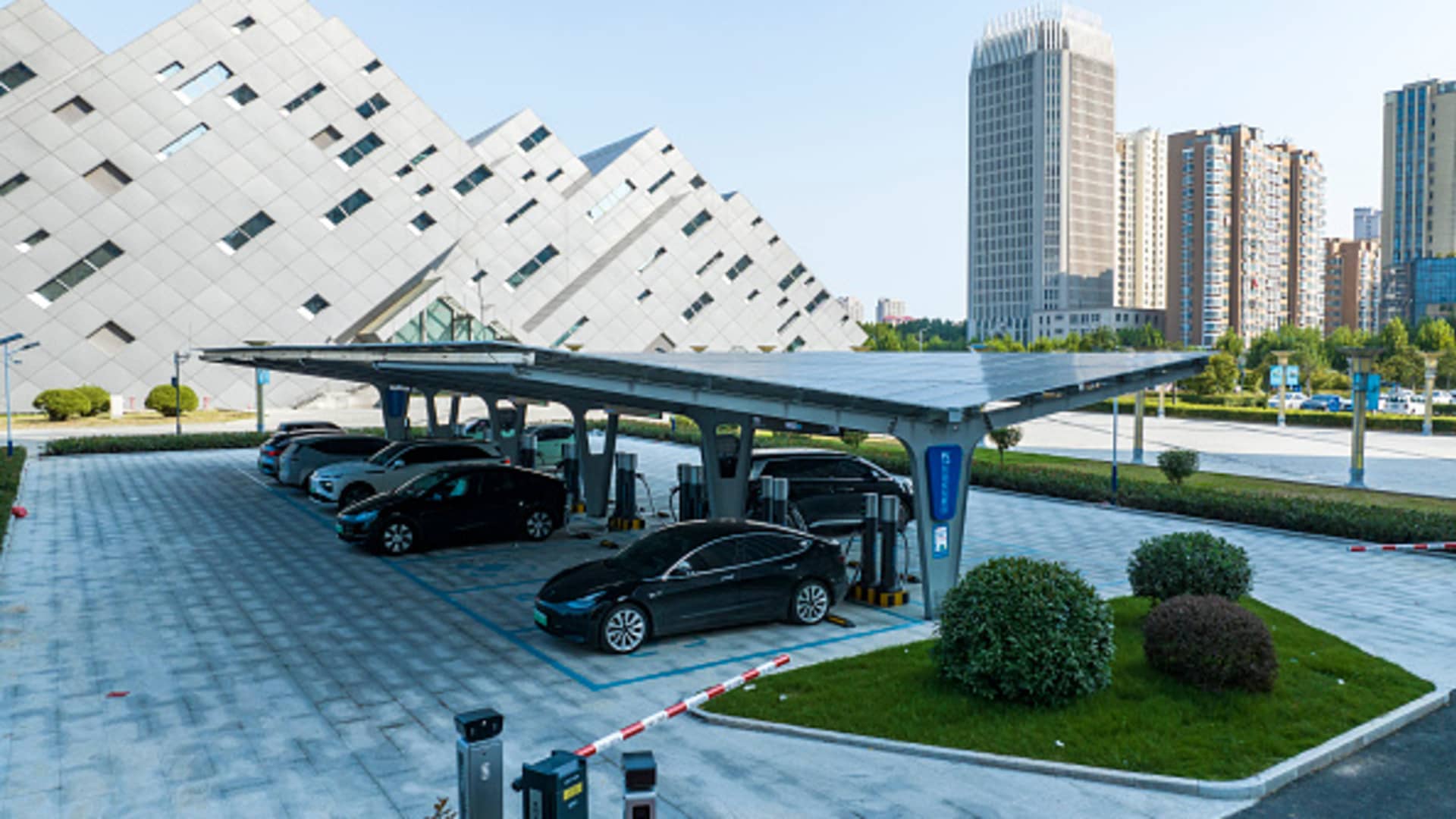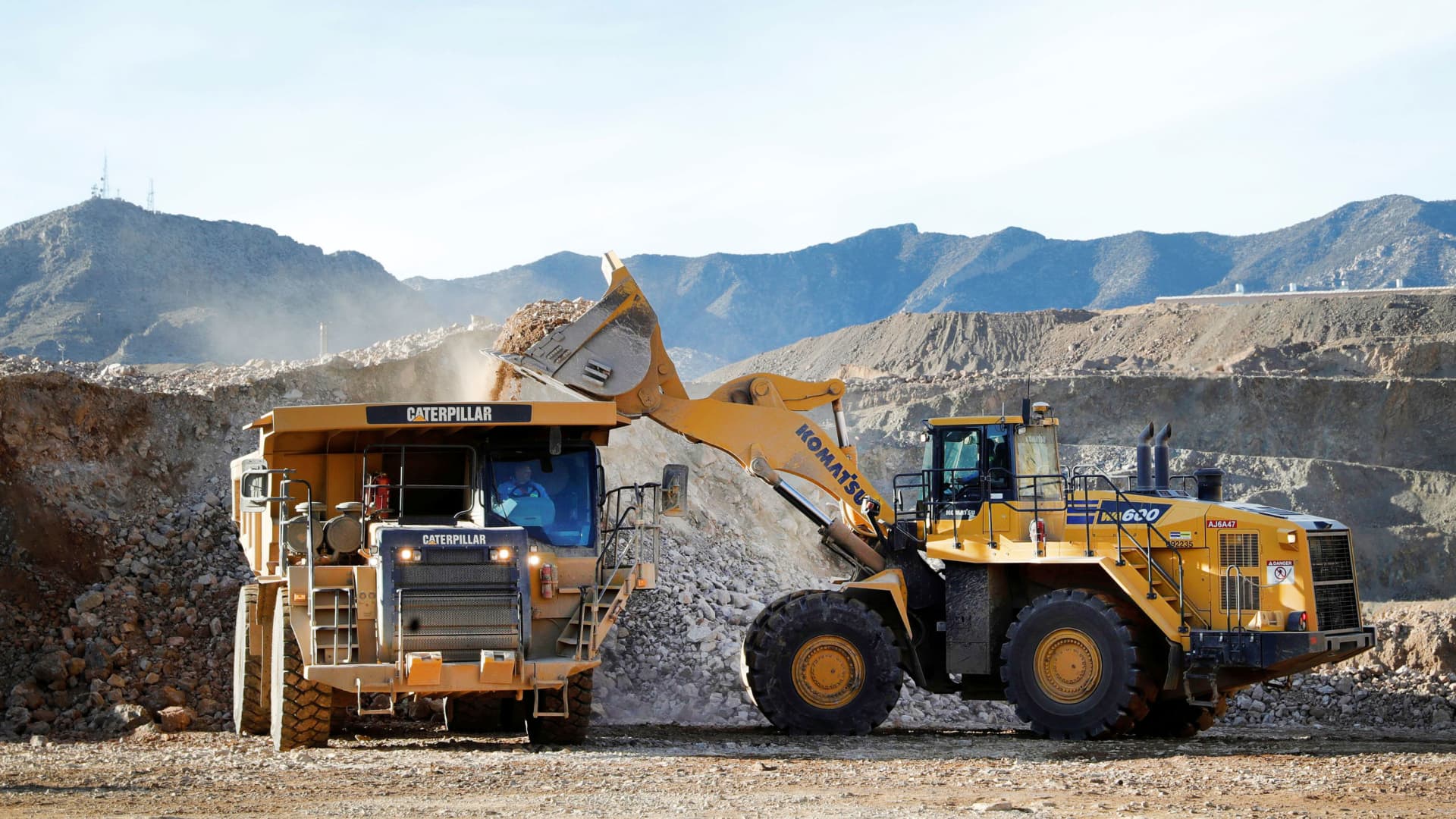China’s EV ambitions are only getting bolder. Here’s one stock analysts expect to soar 50%.

China’s new car market is now 40% electric and hybrid, industry data show. That contrasts with a mere 7.2% across the United States, JL Warren Capital’s Junheng Li said in a note, adding that penetration is only expected to tick up to 12.5% in the next two years. Ford and GM are pulling back on their electric car plans. New Treasury rules that take effect Jan. 1 also make many U.S. EVs ineligible for federal tax credits because the cars still rely on China-made batteries. In China, where Beijing clearly wants to support its electric car industry, the market is not only expected to grow but also get more competitive for incumbents and newcomers. More than 100 new EV models are expected to launch next year, HSBC China autos analysts said in a Dec. 20 report. “Among EVs, we prefer BYD and Li Auto for their continuously strong monthly sales volumes and better-than-peers’ profitability,” the analysts said. HSBC has buy ratings on both stocks. Earlier this month, the analysts raised their price target for U.S.-listed Li Auto to $56. That’s nearly 70% above where shares closed Thursday. Li Auto sells premium-priced cars that come with a fuel tank to charge the battery, a big draw for range-conscious consumers. The startup’s deliveries have soared well above its peers – and beyond its own expectations – to more than 40,000 cars a month. Among 13 major automakers in China, the only company besides Li Auto on track to beat its 2023 sales target is Tesla, JL Warren’s Li said. Li Auto shares hit a record high in August but have since pared gains. “The market’s reaction is largely due to heightened concerns over rising marginal discounts and competitive pressure, especially with peers’ new model launches like AITO M7/M9,” HSBC analysts said in a Dec. 13 note. “However, we believe these impacts have been largely priced in.” “We expect Li Auto’s growth to be sustained in the coming 12 months, supported by a strong product cycle,” the report said. Li Auto plans to begin delivering its first battery-only model in February, and aims to launch three more in the second half of 2024. Expected government support on the consumption front also makes so-called new energy vehicles a relatively preferred sector for the year ahead, said Ding Wenjie, investment strategist for global capital investment at China Asset Management Co. Chinese automakers, including Li Auto, are going beyond just electric to tech such as driver-assist to make their products stand out. Huawei on Tuesday is set to reveal details about its latest Aito car, the M9. Aito is a new energy vehicle brand co-developed by Huawei, which provides the tech while another company, Seres, makes the vehicles. It’s a business model Huawei is pursuing with at least four automakers in China. “With over 10 Huawei-backed EVs being launched in 2024 and its full-stack ADS solution sparking customers’ fresh interest in smart driving, Huawei is well-positioned to accelerate the development of China’s smart car ecosystem,” Jefferies analysts said in their 2024 Autos outlook, published earlier this month. “We prefer Chang’an Auto and Foryou Corp across the Huawei value chain,” the report said. Foryou is an auto parts company, while Changan Automobile is a state-owned manufacturer of cars. Changan announced a joint venture with Huawei in November, in addition to an existing business partnership with the telecommunications giant. “Given Huawei’s technological leadership, we believe Changan would benefit from this collaboration in the longer term,” HSBC analysts said in a report on the automaker Dec. 13. For now, Changan’s electric car brands are seeing sales grow, but not enough to shake HSBC from its hold rating and 18.50 yuan price target. Changan’s Shenzhen-listed shares closed at 17.07 yuan on Thursday. — CNBC’s Michael Bloom contributed to this report.









